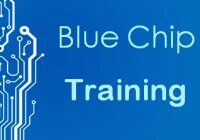 Overview
Overview
Quasar Framework is a framework based on Vue.js for building PWAs (Progressive Web Application) and SSR (Server-Side Rendering) apps. Vue.js is an open source JavaScript framework for building user interfaces and single-page applications. Using Quasar Framework, users can create cross-platform applications with a single Vue JS codebase.
This instructor-led, live training (online or onsite) is aimed at web developers who wish to use Quasar Framework and Vue JS to create cross-platform applications.
By the end of this training, participants will be able to:
- Build a cross-platform application for iOS, Windows, etc.
- Manage states and data with Vuex.
- Create a backend application with Firebase.
Format of the Course
- Interactive lecture and discussion.
- Lots of exercises and practice.
- Hands-on implementation in a live-lab environment.
Course Customization Options
- To request a customized training for this course, please contact us to arrange.
Requirements
- Experience with JavaScript
Audience
- Web Developers
Course Outline
Introduction
Quasar Framework Overview
- What is Quasar Framework?
- Quasar Framework features
Vue JS at a Glance
- Virtual DOM
- Data binding
- Components
- Animation/transition
- Templates
Preparing the Development Environment
- Installing and configuring Quasar Framework
- Installing and configuring VueJS
Vue.js Quick Start
- Binding data
- Displaying lists
- Handling events
- Creating custom components
State and Data Management Vuex
- Setting up a store
- Working with tasks
Forms and Validation
- Adding and editing tasks
- Validating forms and input
Data Persistence with Firebase
- Creating a project
- Importing data
- Reading and writing data
- Handling errors
Development on Platforms
- Using Electron
- Using Cordova
- Building for production
Testing the Application
- Testing with unit tests and mock tests
Debugging the Application
- Handling errors
Deploying the Application
- Deploying a cross-platform application
- Hosting a cross-platform application
- Running on different emulated OS devices
Securing the Application
- Hiding data
Troubleshooting
Summary and Conclusion
